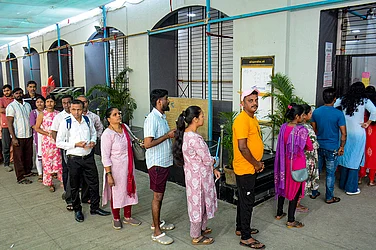It will be an anniversary that, in all probability, will leave us as divided as ever. Kashmir, for that matter, has always been a contested issue and has remained so in the past year, ushered in by what could possibly be described as a ‘surgical strike’ by the Union government. Executed with stealth that took everyone by surprise, Jammu and Kashmir was stripped on August 5 last year of its special privileges. Article 370 (and Article 35A), which granted certain special privileges to the region, was revoked and the state too was somewhat downgraded, split into the two Union territories of J&K and Ladakh.
Like everything else that involved Kashmir, these measures left the country divided. Many celebrated as they were convinced by the government’s narrative of a ‘historical blunder’ being corrected some seven decades after independence. The steps, we were told, would result in better integration of the region with the rest of the country and would also hasten its development. Those who didn’t buy the government’s argument cried foul—ranging from murder of democratic opinion of Kashmiris to a sinister plot to change Muslim-majority Kashmir’s demography.
Now, nearly a year later, the gulf in how we view the watershed events of last August has widened rather than being bridged. While Kashmiris evidently sulk—they have really not been allowed the chance to voice their feelings as the region continues to live under strict security restrictions, including sweeping arrests and stifling internet curbs—the anniversary will certainly be a subject of both celebration and mourning, depending on who is on which side. Those who bat for the government say progress is being made, citing successes in controlling militancy among others. But there is also no dearth of those who remain critical of the manner Kashmir is being handled and one recent tweet by a known critic summed up what many felt was the true reality of Kashmir today. “Take away the mountains, the trees and the lakes, and Kashmir ceases to be a heaven. It in fact is hell.”
In the absence of proper means to check out the veracity of the divergent claims, it is indeed difficult to arrive at what exactly is Kashmir’s reality. But on the surface, it seems the going has not been as smooth as those in power may want to suggest. Many mainstream political leaders are still behind bars and even the local media is shackled, with journalists often being called for questioning by the police. If faster development was at the heart of ‘integrating’ Kashmir, that too is not in evidence. A promised global investors’ summit has not happened, though Kashmir has been further internationalised, with the UN Security Council and the US Congress deliberating on its changed status. An aggressive China has got into the act as well, seeking to exploit the disquiet in India’s frontier region by flexing its muscle along the sensitive border. In between, Kashmiris possibly have grown more apprehensive, as those in power push measures allowing outsiders to settle and work in the region.
Good or bad, the changes afoot in Kashmir are significant and Outlook in this special issue seeks to understand their implications without being judgemental. Holding up the mirror without prejudice is our primary job and we report on Kashmir in the following pages with the purpose of portraying in a non-partisan manner what actually is playing out on the ground. In an environment in which objective assessments are a rarity, our collective effort has been particularly satisfying. We reached out to all sides and very many shades of opinion—from the nationalist BJP ideologue Ram Madhav to leaders of the separatist Hurriyat as also the Pandit community who have been victims of the long-drawn quagmire—for a better understanding of what otherwise is a complex issue. The truth lies somewhere within the well-rounded coverage that we decided to call Kashmir 370 degrees.


























